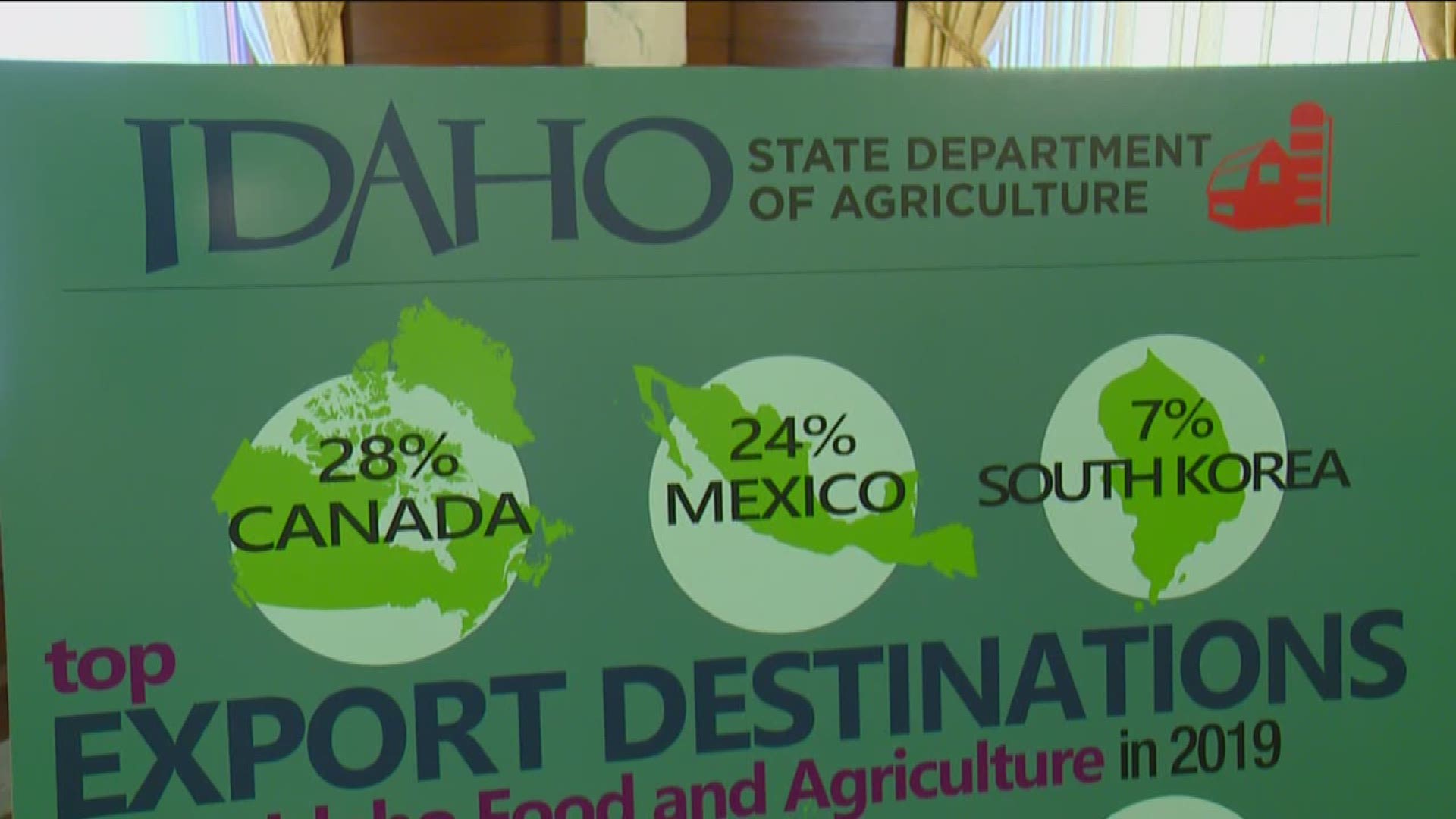BOISE, Idaho — Three members of Idaho's congressional delegation, state directors of agriculture and commerce, and representatives of the state's agriculture industries joined Gov. Brad Little Thursday to hail the U.S.-Mexico-Canada trade agreement.
The deal replaces the 1993 North American Free Trade Agreement, which President Donald Trump sought to renegotiate shortly after taking office in 2017.
"I know a lot of folks in the agriculture community took a big gasp here in Idaho," said U.S. Senator Mike Crapo (R-Idaho). "I'd been saying for years that the United States is getting out-negotiated in our trade negotiations, and I thought that we had done a bad deal in NAFTA ... I was waiting for a president who would get this right."
"It's a tremendous opportunity to be representing the Farm Bureau with 80,000 family members that we can report and go back to them and relay that we are making progress in trade agreements that we can feel good about and we can keep family farms going on for more generations, as we go through these trying times," said Richard Durrant, a Meridian farmer who is also vice president for the Idaho Farm Bureau Federation.
Durrant's family farm has Ada County's only grain elevator.
"The opportunity to move wheat into Canada with some fair and balanced discounts and dockages going across -- and Mexico has been a huge importer, and so it's just an excellent opportunity to level the playing field," he said.
Sen. Crapo said that Canada has, for a long time, had tariff and non-tariff trade barriers in several sectors, including lumber and "illegal" dairy subsidies. He said those are now being removed.
At Thursday's news conference, Sen. Crapo went on to ask Idaho Potato Commission CEO Frank Muir: "How long has it been since we could get potatoes more than 20 miles into Mexico?"
Muir's reply: "Forever."
"Because of non-tariff trade barriers that Mexico has erected," Crapo said. "And I assume we're resolving that."
"Not yet," Muir answered.
"(The USMCA) will hopefully get it done," Crapo continued.
President Trump signed the USMCA into law in January, after the House and Senate both approved it with supermajority, bipartisan support. Lawmakers in Mexico have also voted to ratify the agreement, but the process is not finished in Canada's parliament.
According to an analysis by the U.S. International Trade Commission, the USMCA will potentially create nearly 176,000 new jobs in the U.S. and raise the nation's gross domestic product by more than $68 billion dollars.
"The United States has five percent of the world's population. We produce 25 percent of the world's wealth. That means we better have trade agreements, because 95 percent of our customers are outside our border," said U.S. Rep. Mike Simpson (R-Idaho/2nd Congressional District).
Canada and Mexico, respectively, were the top two export destinations for Idaho food and other agriculture products in 2019. Together, they form the market for more than half of those exports.
"What a shame it would have been if we had lost those markets," said Idaho State Dept. of Agriculture director Celia Gould.

